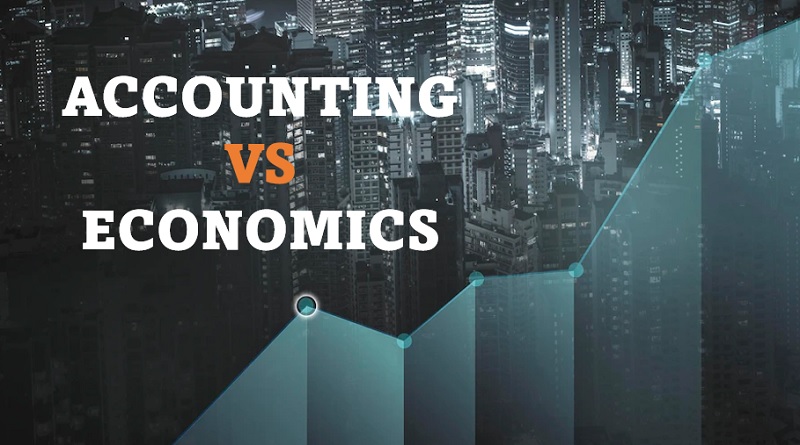ACCOUNTING VS ECONOMICS: KNOW THE DIFFERENCES
The first question a student has when taking these disciplines is, “What are the similarities and differences between accounting and economics?” Both fields mostly work with numbers. However, accounting is concerned with gathering, evaluating, and disclosing income and costs. The production, consumption, and transportation of goods are the main topics of economics, a subfield of social science.
Accounting deals with monitoring the movement of money for both businesspeople and private citizens. The major monetary and economic trends are monitored by economists.
Both words are useful when making financial decisions, establishing economic policies, and making long-term plans for businesses and governments.
Economics is more on the theoretical side, while accounting is more on the numerical side. Students, therefore, find accounting more challenging than the latter. For them to succeed in the course, they occasionally need assistance with their accounting assignments.
It’s sometimes simple to believe that accounting and economics are the same things. If you hold the same viewpoint, the subsequent piece will persuade you to adopt a different perspective on accounting and economics.
Accounting vs Economics: Key Differences
Definition
What is accounting?
All of a person’s or government’s financial records are kept in accounting. All of the data are kept in tabular form in accounting. There are rules for how we should record the completed transactions as well. Debit or credit, asset or liability, income, and expenses are the types of transactions that are accomplished in accounting.
What is economics?
The best approach to define economics is to say that it is the study of how society makes use of the finite resources at its disposal. It is the primary area of social science and concentrates on how products and services are produced, distributed, and consumed.
The two most often used economic statistics are GDP (Gross Domestic Product) and CPI (Consumer Price Index).
Types
There are mainly three types of accounting.
- Financial Accounting
- Cost Accounting
- Forensic Accounting
Financial Accounting
a methodical procedure that individuals follow to produce results for a company.
Cost accounting
Any firm can use cost accounting to assist them to decide how much a product will cost. Everyone is aware of how crucial it is for any business to calculate the cost of producing a product. They use it to determine the price at which to sell their goods.
Forensic Accounting
It is a crucial area of accounting since it supports the inquiry process. It assists with gathering, retrieving, and restoring financial data. The construction of a framework is being expanded in scope.
Economics is further divided into two parts.
- Microeconomics
- Macroeconomics
Microeconomics
Microeconomics is used on a tiny scale. Microeconomics is the study of economic indicators for a specific business or industry. It might incorporate supply, demand, or macroeconomic factors that solely have an impact on one industry, for instance.
Macroeconomics
It functions on a bigger scale. The economic indicators like politics or the legal system of the government appear in this. For instance, only those factors that influence a company’s business operations fall under the category of macroeconomics.
Field of Study
You acquire the knowledge necessary to record and report a business’s transactions through accounting. They research important accounting topics like transactional rules and global accounting norms. You can obtain an accounting degree from any college to work as an accountant in a company.
You primarily study the various economic theories in economics, including supply and demand networks, various market systems, etc. It also involves examining the setting in which the company conducts its financial activities. To pursue a career as an economist, you can earn a bachelor’s or master’s degree in the subject.
Economics versus Accounting In these domains, various subjects are being researched.
Primary focus
Accounting is a crucial component of company. It deals with the examination and documentation of various commercial transactions. The primary function of accounting in business is to produce accurate financial reporting.
On the other hand, supply and demand chains for any form of good or service are the focus of economics. Analysis of business indicators for any business is the other major emphasis of this.
Applications
Making investment decisions and creating efficient control settings in a business are only two of the many other uses of accounting. Accounting is also used to make decisions about budgets and future projections.
In any company, supply and demand-related factors can be found using economics. It aids in explaining a company’s offerings as well as the key variables that affect its resources.
Utilization of data
Accounting makes use of the information and data gathered by using a few concepts and principles. When discussing accounting, these ideas and principles are crucial. Any accounting theory becomes creative accounting when management abuses it to shape results.
To produce any conclusion, economics needs facts gathered via research and assumptions. Whether or not the assumption is accurate is irrelevant. This occurs as a result of shifting business conditions for various companies.








